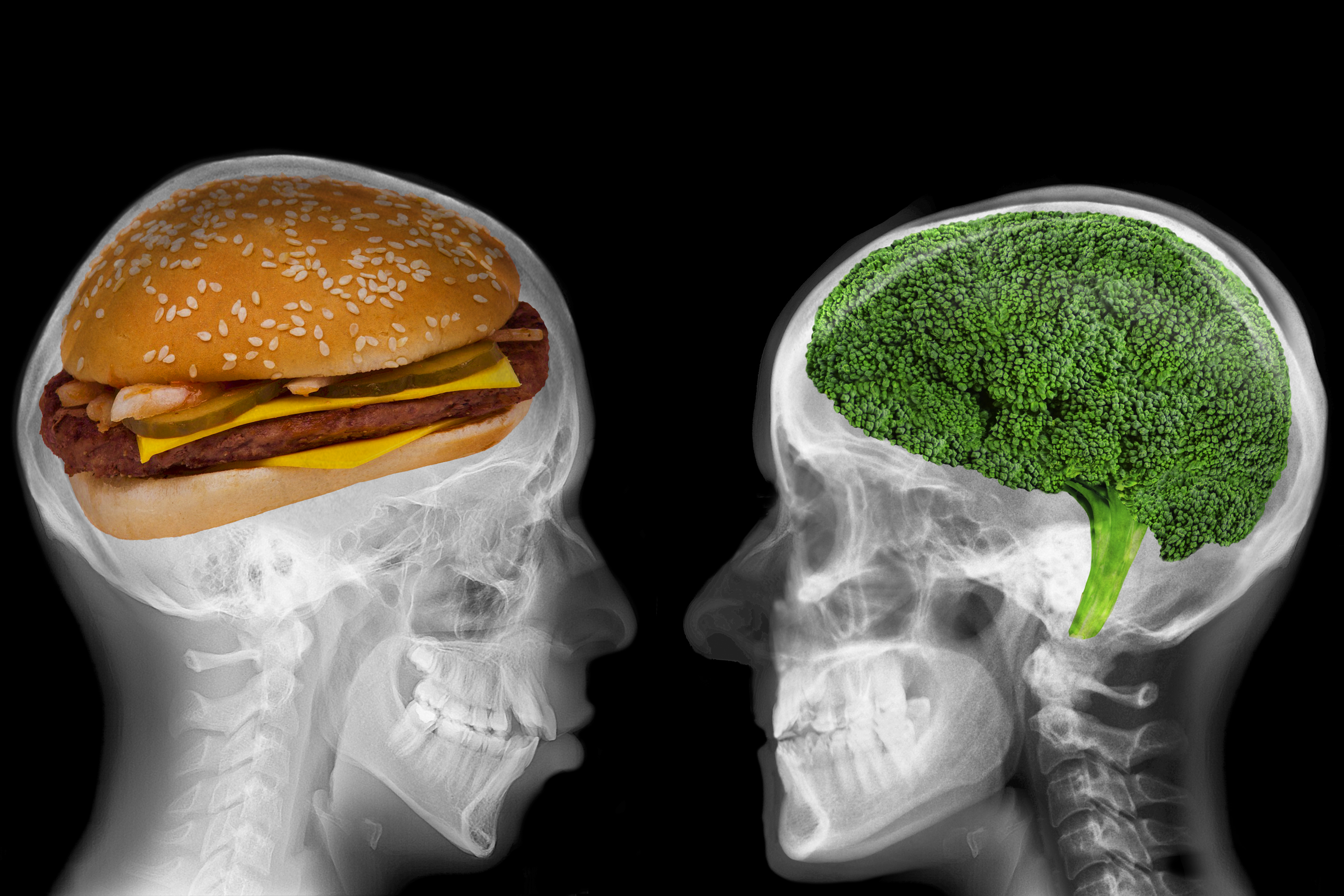According to the researchers, brain scans conducted during this study show negative changes in neurotransmitters and gray matter volume in those who have a poor-quality diet compared to those who adhere to a heart and brain-friendly Mediterranean diet. These changes are also associated with rumination, which is a part of the diagnostic criteria for conditions affecting mental health like anxiety and depression.
What happens when we have a sub-par diet?
Maintaining a poor-quality diet leads to reductions in gamma-aminobutyric acid (GABA) and elevated levels of glutamate. Both of these neurotransmitters were found to be affected, along with reduced gray matter volume in the frontal area of the brain. This might help to explain the association between what we eat and how we feel.
“We can eat ourselves well! Ultimately, we see that people who have an unhealthy diet — high in sugar and saturated fat — have imbalanced excitatory and inhibitory neurotransmission, as well as reduced volume of grey matter in the frontal part of the brain. This part of the brain is involved in mental health issues such as depression and anxiety,” said Dr. Piril Hepsomali, University of Reading.
What changes can happen in our brains?
While the exact reason why diet affects the brain in this way is still under investigation, however, it is possible that dietary patterns that are high in saturated fats may cause changes in glutamate and GABA metabolism and neurotransmission, which has previously been shown in animal studies.
Additionally, changes in the gut microbiome, due to dietary patterns that are high in saturated fats, is also thought to have an impact on cell machinery that drives both GABA and glutamate production.
A diet that is high in cholesterol, fat, and sugar has been shown to decrease the number of parvalbumin interneurons, which deliver GABA to where it is needed. This sub-par diet impacts glucose, making glucose and insulin levels higher. Which in turn increases glutamate in our plasma and brain, further reducing GABA production and release.
Finally, maintaining a diet that is high in cholesterol fat, and sugar can cause changes in cell membranes that alters the release of neurotransmitters. These changes in brain chemistry could also lead to changes in brain gray matter, such as those found in this study.
Is this why an unhealthy meal doesn’t keep me full and makes me want more?
“I would like to note that GABA and glutamate are intimately involved in appetite and food intake, too. Reduced GABA and/or increased glutamate might also be a driving factor in making unhealthy food choices. So, there may be a circular relationship between eating well, having a healthier brain and better mental wellbeing, and making better food choices to eat well,” said Hepsomali.
As with anything you read on the internet, this article should not be construed as medical advice; please talk to your doctor or primary care provider before changing your wellness routine. This article is not intended to provide a medical diagnosis, recommendation, treatment, or endorsement. Additionally, it is not intended to malign any religion, ethic group, club, organization, company, individual, or anyone or anything. These statements have not been evaluated by the Food and Drug Administration.
Content may be edited for style and length.
References/Sources/Materials provided by:
T.W. at WHN
https://www.reading.ac.uk/news/2024/Research-News/Poor-quality-diet-makes-our-brains-sad
http://dx.doi.org/10.1080/1028415X.2024.2355603
https://www.worldhealth.net/news/mediterranean-diet-reduces-risk-cognitive-decline/
https://www.worldhealth.net/news/mediterranean-diet-could-help-reduce-risk-dementia/
https://www.worldhealth.net/news/best-overall-diets-2024-report/




